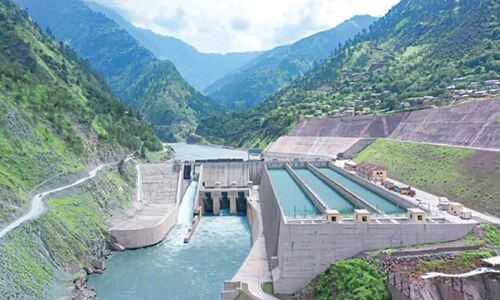ISLAMABAD: The Oil and Gas Regulatory Authority (Ogra) on Friday asked the producers of liquefied petroleum gas (LPG) to submit their accounts to help the regulator in setting the fuel’s price at a reasonable level.
At this stage, “the reasonability of locally produced LPG price has been worked out based on the rationale and reasonability at each level of supply”, an Ogra spokesperson said, adding that the regulator upheld the rationale and reasonability of the price it fixed last month.
The LPG pricing has been at the centre of controversy over the last few weeks. The LPG producers have been critical of prices set by the regulator, saying it did not take into account market dimensions and legal requirements. Last week, they asked the petroleum ministry to intervene at government level and revoke prices notified by the regulator.
A former chairman of Ogra also explained that the regulator was also deviating from the LPG pricing mechanism applied previously. He said the regulator used to set “reasonable” LPG prices on the basis of Saudi Aramco contract price (CP) based on butane and methane contents of 40:60 per cent on a monthly basis, but it was now doing so on the basis of average of three-month CP price.
He said that apart from import parity of CP price, the consumer price also used to include distribution and marketing margin for local companies approved by the government and fixed sales tax rate to ascertain “price reasonability”. All other factors remain unchanged except the three-month average of import price.
The oil industry and Ogra are also at odds over the fee structure recoverable from oil companies and refineries and are fighting a legal case in courts.
On Friday, the regulator questioned the rationale put forth by the LPG companies and seeking the government intervention. “LPG companies are contesting an incorrect claim that Ogra did not cater to the costs and thus tantamount to halting supplies,” the Ogra spokesperson said.
He said Ogra once again directed the LPG companies to substantiate their claims and provide relevant data in support for its consideration. The regulator had also issued separate letters to all the LPG-producing companies to submit their record which they had withheld last month despite being asked to do so.
“The LPG producing companies are fighting their case in a non-professional manner and at the wrong forum,” an Ogra official said, adding that instead of seeking government intervention they should come up with evidence in support of their cause.
Ogra said LPG was a “poor man’s fuel” under the federal government policy, hence “the demand for increase in the LPG price for the domestic sector is neither justified nor consistent with the said policy”.
Giving out framework of determining reasonability of the LPG price, Ogra said the Council of Common Interests earlier approved the LPG Production and Distribution Policy 2016.
To make LPG available for domestic consumers at an affordable price and to avoid frequent price fluctuations to ensure sustained price level was the primary objective of the policy, it added.
The policy “clearly demarcates parameters for locally produced LPG and LPG imports in terms of supply, consumption, pricing and other commercial consideration. The LPG import has been specified for “industrial and automobile sector” and a deregulated activity, Ogra explained.
Ogra has also estimated the monthly average LPG local production of around 55,000-60,000 tonnes that was sufficient to meet demand of the domestic sector. This demand, however, is volatile and fluctuates with respect to weather and market trends.
At present, LPG Rules of 2001 mandated the regulator to determine reasonable LPG prices. The consumer price of the fuel for the domestic sector is an aggregate of locally produced LPG, marketing and distribution margin and taxes.
The regulator said it also asked the companies last month to submit the details of revenues and cost breakdown in respect of their LPG business to assist it determine the requisite reasonability of LPG consumer price for the domestic sector, but the companies declined to provide any such information on the plea that no fractional or separate accounts were maintained in this regard.
The oil industry has supported a pricing mechanism proposed by the petroleum ministry to Ogra, envisaging the LPG rates at Rs59,190 a tonne. However, this was rejected by the regulator. Instead, Ogra on Feb 24 notified the LPG price at Rs45,276 a tonne, or Rs910 per domestic cylinder weighing 11.8 kilograms. The petroleum ministry proposed a price of Rs1,100 for the domestic cylinder.
However, the regulator held that the notified prices would be applicable only to locally produced LPG while the imported commodity would remain deregulated and would be supplied to industrial consumers and the auto sector.
Published in Dawn, March 11th, 2017













































Dear visitor, the comments section is undergoing an overhaul and will return soon.